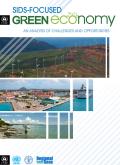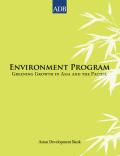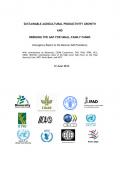

This book commences with a broad overview of Indonesia’s development since the 1960s. The analytical frameworks for the study, which were developed at Harvard University and ADB, are then used in an attempt to identify the constraints that most severely bind the country’s development, and therefore the priorities for policy implementation and/or reform. The country’s macroeconomic management and monetary policy since the Asian financial crisis is reviewed. The challenges of Indonesia’s slow industrial transformation and small industry sector are described, as are their implications for poverty reduction efforts. The challenges Indonesia faces in developing its infrastructure are set out, e.g., the country’s diverse topography, archipelagic nature, and monopolies. Human capital, an essential element in both growth and poverty reduction, is analysed for the country, including the improvements in enrolments and gender balance, and the limitations the poor face to accessing education. Indonesia’s record on poverty reduction is traced, as are the efforts to improve it.

Early in 2012 Mexico, as G20 President, invited international organisations to examine practical actions that could be undertaken to sustainably improve agricultural productivity growth, in particular on small family farms. The preparation of this report, co-ordinated by the FAO and the OECD, is a collaborative undertaking by Bioversity, CGIAR Consortium, FAO, IFAD, IFPRI, IICA, OECD, UNCTAD, Coordination team of UN High Level Task Force on the Food Security Crisis, WFP, World Bank, and WTO. The recommendations provided are broadly of two types: specific actions that can contribute in some way to improving productivity growth or sustainable resource use (whether building on existing initiatives or suggesting new activities) and more general proposals that may not be actionable as presented but that serve to highlight areas for priority attention.
This report examines how green growth and sustainable development policies can be incorporated into structural reform agendas. Indeed, as demonstrated in the report, many of these policies are closely linked and synergistic with the framework policies applied by G20 governments in their efforts to pursue strong and sustainable growth.
